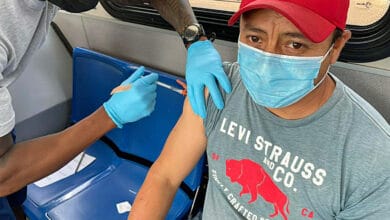Family planning a utopian dream in Venezuela

By Sarai Coscojuela
Caracas, Sep 14 (EFE).- The scarcity of contraceptive methods in Venezuela and their high cost have made family planning an ordeal, thus endangering – according to various organizations and experts – the sexual and reproductive rights of women, who see being able to decide whether or not to get pregnant as a kind of utopian dream.
The Venezuelan non-governmental organization Convite recently published a study on the scarcity of birth control methods for the month of July which found that only 17.2 percent of women wanting injectable contraceptive methods could get them while the figure for intrauterine devices was 18.7 percent and the “pill” was 60.6 percent, although 85 percent of women wanting to use condoms could get them.
Despite these figures, the coordinator of the Venezuelan Association for Alternative Sexual Education (Avesa), Magdymar Leon, told EFE that the supply of birth control methods in the country had improved compared with 2018, but nevertheless the high costs were making them inaccessible for most people.
Leon, a clinical psychologist with a Master’s Degree in Women’s Studies, said that the funding for state entities via the Humanitarian Response Plan, had also improved but it continues to be “insufficient to satisfy” current needs.
“In fact, in a study we did at Avesa we found that the index of unsatisfied needs for birth control among Venezuelan women is rather high, compared with the regional average,” she said.
Leon went on to say that, not having full access to these methods results in “limitations on being able to control pregnancies … (and) deciding” about reproduction.
Thus, she said, there are a large number of unwanted pregnancies, which is resulting in an increase in “unsafe abortions.”
“We have quite a restrictive legal framework. The voluntary interruption of pregnancy is not allowed, and given these limitations on controlling reproduction, what happens in Venezuela and in any other part of the world in the face of these circumstances is that unsafe abortions increase and with that comes an increase in maternal deaths,” she said.
According to the study published in April titled “The health of women in Venezuela: Crisis in the health care system and Covid-19,” which interviewed 203 women in five Venezuelan cities, 1.9 percent admitted having induced an abortion at one time or another in their lives.
The study also found that seven of every 10 women interviewed were not currently using birth control methods or methods to prevent sexually transmitted diseases, and nine out of 10 of those between 15 and 59 years old had not been able to plan their pregnancies.
Leon also said that 24 percent of the women consulted said that they could not purchase contraceptive supplies because they don’t have the economic resources to do so.
Others, the specialist continued, can buy birth control supplies occasionally “but not all the time.”
“In the interviews, some said that ‘the last time I used birth control methods was three months ago, a year ago’ … and obviously, that is completely ineffective. You have to use the pill, which must be the proper pill, (and) they can’t be modifying the pill (use), they can’t be changing it every month,” she said.
In Venezuela, poor women are the ones hardest hit by this scarcity of birth control methods and the high cost of same, Leon said.
“Although in general incomes have fallen, the poorest are those who have the greatest limitations, those who are in rural areas, who are in more isolated zones, who don’t have access to (US) dollars, because we know that there’s a Venezuela that has access to dollars and … (one) that doesn’t,” she said.
Leon added that, besides having difficulties buying birth control methods in pharmacies, women are also having problems linked to transportation, including gasoline scarcity, and now the Covid-19 pandemic, all of which makes it very difficult for them to get to health centers.
In her judgment, the Venezuelan state must increase funding for birth control methods, open up more health services and diversify the supply, because the Aveda surveys have found that at health centers there often are only condoms and emergency birth control methods available, “or they have the pill and then next month or in two months they have some other method.”
“Women, in the surveys, are demanding better contraceptive methods that last longer, like the subdermal implant or intrauterine devices … Those are the ones in greatest demand and there’s not a very good supply of those,” she said.
“The government and the Humanitarian Response Plan have to be making every effort to guarantee access to contraceptive methods and guarantee the public’s sexual and reproductive rights, in particular those of women,” Leon said.





